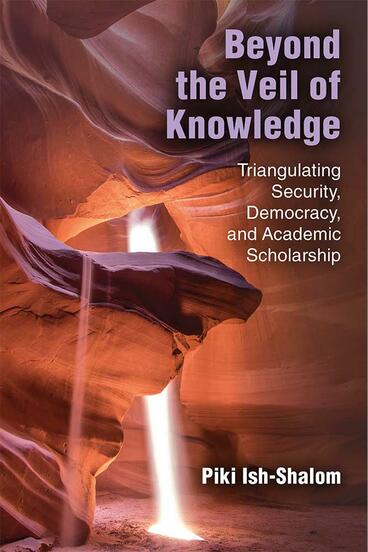Beyond the Veil of Knowledge
Triangulating Security, Democracy, and Academic Scholarship
Calls on the academy to rethink constructivism and its interpretations of the sociopolitical world
Description
Is there a need to remodel constructivism to be more politically attuned? Author Piki Ish-Shalom calls for an activist academy that engages society and the polity to prevent the watering down of democracy, while helping to create a space for criticism. In this book, he suggests several concrete measures for this engagement within three spheres: individual theoretical work, the academic community as a whole, and within society and the polity. Beyond the Veil of Knowledge suggests that essentially contested concepts are a key medium that politicians use to try to minimize public resistance to their political goals. For constructivists, this means that the social construction of both social knowledge and the social world can be understood as the sociopolitical construction of knowledge and the sociopolitical world.
Piki Ish-Shalom is the A. Ephraim and Shirley Diamond Family Chair in International Relations and Associate Professor of International Relations at the Hebrew University of Jerusalem.
Reviews
“This book, from a well-respected scholar, provides new and important insights on the responsibilities and tensions of IR academics in relation to the policy world."
—Anthony Lang, University of St. Andrews
“This book has the dual ambition of unpacking the significance of essentially contested concepts in politics and of reflecting on the implications of this for academic work. A Gramscian sensibility to how politics impair democratic agency is fused with a Habermasian idealism about the prospect of recovering it. The resulting discussion is riginal and thought provoking.”
—Anna Leander, Graduate Institute Geneva
"This is a powerful book that all academics should find useful in these troubled political times."
- Brent J. Steele
—Political Science Quarterly

